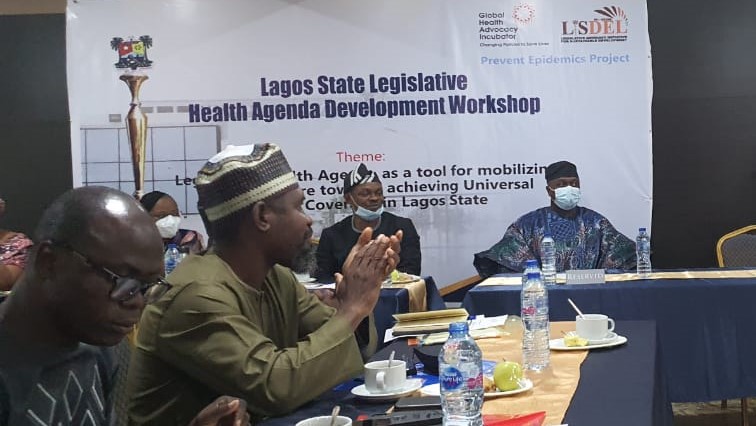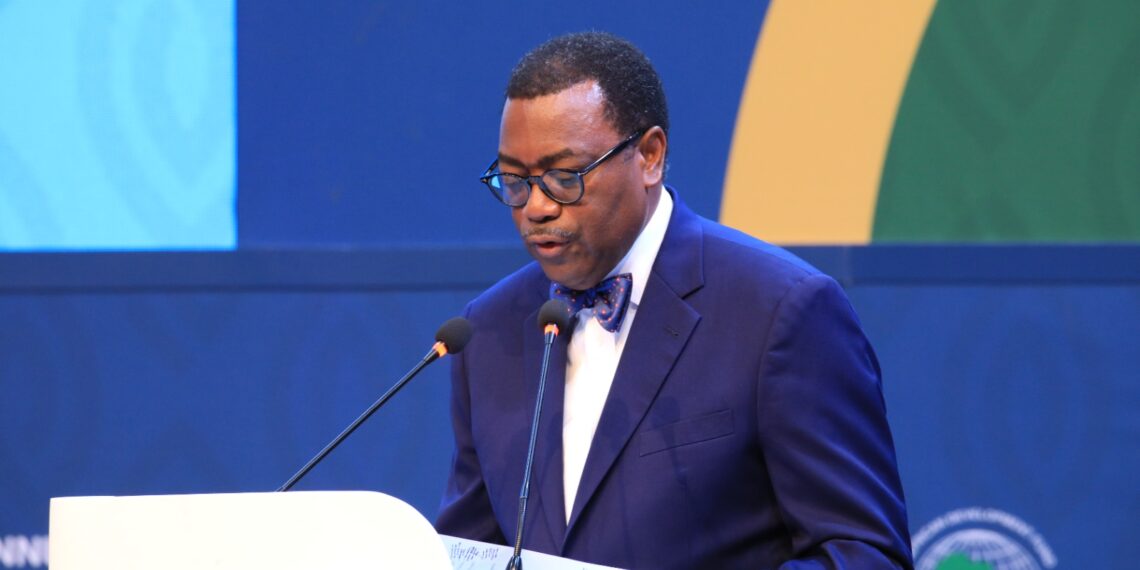
Defining a Legislative Health Agenda for Lagos State House of Assembly
- Health SectorHealth Security
- No Comment
- 395

Lawmakers across the democratic world are statutorily charged with the mandate of appropriation, accountability, oversight, legislation which contribute in no small measures towards developing all sectors of the economy including health. In order to engender a structured approach for deploying their statutory duties towards improved health system and set the state on the trajectory of Universal Health Coverage (UHC) , the Lagos State House of Assembly partnered with the Preventing Epidemics (PE) Project being implemented by the Legislative Advocacy Initiative for Sustainable Development (LISDEL) to develop the State’s Legislative Health Agenda (LHA).
The initial draft of the Lagos LHA was developed during the 4th annual, national Legislative Summit on Health that held in Abuja from May 23 – 25, 2021; and further refined and finalized at a work session that was conducted for the purpose in Lagos State, on August 26. The workshop tagged “Legislative Health Agenda as a Tool for Mobilizing the Legislature towards achieving Universal Health Coverage in Lagos State” was additionally convened to identify and articulate the House of Assembly’s health sector priority policy thrusts; harness and align their statutory functions towards advancing the identified priority health policy thrusts; and to chart a course of action for the implementation of the LHA.
Priority areas of the State’s LHA include health insurance, primary health care, tuberculosis, family planning, health institutions and epidemic preparedness and response. Lawmakers identified various issues around these areas and spelt out legislative objectives to address the challenges using their statutory functions.
In his remarks Hon. Rotimi Olowo, Chairman Committee on Finance, Lagos State House of Assembly, who represented Rt. Hon. Mudashiru Ajayi Obasa, Speaker of the House, stated that Covid-19 has shown Lagos State to be more reactive to public health issues. He highlighted the need to be more proactive, particularly as the influx of people into Lagos needing healthcare stretches the system’s capacity.
He also highlighted the high level of brain drain of the health workforce from the State on issues related to inadequate compensation; and capital flight due to health tourism. He however reinstated the commitment of the Legislature to ensure that the priorities of the healthcare sector are delivered.
Hon. Sokunle Olushola, Chairman of the Committee on Healthcare Services, reiterated the Speaker’s perspectives in his address, and the commitment of the Legislature to work with the Executive Arm of Government in the State towards achieving health sector reforms.
The Director, Epidemiology, Biosecurity and Global Health at the State Ministry of Health, Dr Abdulsalam identified some key reforms needed, digitalized information systems using state-of-the-art technology combined with new biotech medical innovations.
He also reiterated the need to increase investments in human resources to enhance the quality of care they provide and their capacity to respond to health security threats in the State; and creation of a specific budget line for epidemic response in the state.
Earlier in his opening address, the Project Director of the PE project at LISDEL, Dr. Gafar Alawode, identified the role of the lawmakers in deploying their statutory functions towards strengthening legal, financing and accountability frameworks for development including health. He congratulated the Lagos State House Assembly for being the first state to hold a Legislative Health Agenda development workshop.
The lawmakers and other participants recommended that healthcare facilities in the State should be revitalized; healthcare workers should be adequately compensated to stem brain-drain; and health security mechanisms should strengthened through creation of budget lines for public health emergencies, improved budgetary allocation, improved legislative oversight and development of a comprehensive Biosecurity Law for the State to cater for public health issues beyond COVID-19.
Contributed by Eruemolor Angela (LISDEL)





